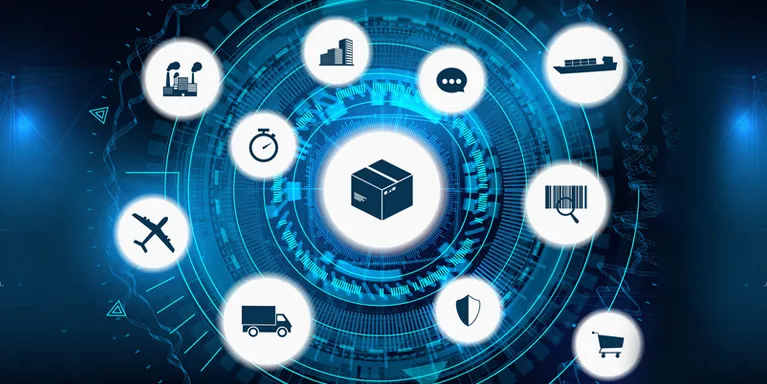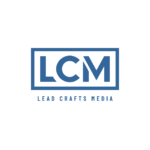Blockchain technology has emerged as a revolutionary tool for enhancing transparency, traceability, and trust within supply chains. When integrated with cloud computing capabilities, blockchain offers unprecedented opportunities to streamline operations, improve efficiency, and ensure accountability across global supply networks. This blog explores how blockchain and cloud computing synergize to transform supply chain management, the benefits they offer, practical applications, and the challenges involved in implementation.
Understanding Blockchain in Supply Chain Management
Blockchain is a decentralized and distributed ledger technology that records transactions across multiple computers in a secure and transparent manner. Each transaction, or “block,” is linked cryptographically to the previous one, forming a chain of blocks. This immutability and transparency make blockchain ideal for tracking and verifying goods as they move through the supply chain.
Key Benefits of Blockchain for Supply Chain Transparency
- Enhanced Traceability:
Blockchain enables end-to-end traceability of products by recording every transaction and movement within the supply chain. This transparency helps identify the origin, journey, and current location of goods, reducing the risk of counterfeit products and unauthorized substitutions. - Improved Transparency and Accountability:
Supply chain stakeholders can access a single, shared view of transactions recorded on the blockchain. This transparency fosters trust among participants and ensures that all parties adhere to agreed-upon standards and contractual obligations. - Reduced Fraud and Counterfeiting:
Blockchain’s immutable nature prevents unauthorized alterations to transaction records, making it difficult for malicious actors to manipulate supply chain data or introduce counterfeit products into the market. - Efficient Compliance and Auditing:
Automated smart contracts on the blockchain can enforce compliance with regulatory requirements and contractual terms. Auditors and regulators can access real-time data, simplifying auditing processes and ensuring regulatory compliance across the supply chain. - Supply Chain Optimization:
By providing real-time visibility into inventory levels, production status, and shipment tracking, blockchain helps optimize supply chain operations. This visibility minimizes delays, reduces inventory holding costs, and improves overall operational efficiency.
Integrating Blockchain with Cloud Computing
Cloud computing complements blockchain technology by providing scalable and secure infrastructure for storing, processing, and analyzing blockchain data. The integration of blockchain with cloud computing offers several advantages:
- Scalability and Flexibility:
Cloud platforms allow businesses to deploy and scale blockchain applications according to their needs, accommodating fluctuations in transaction volumes and data storage requirements. - Cost Efficiency:
Cloud-based blockchain solutions eliminate the need for businesses to invest in and maintain costly on-premises infrastructure. Pay-as-you-go pricing models reduce capital expenditures and operational costs associated with hardware maintenance. - Enhanced Security:
Cloud providers offer robust security measures, including encryption, identity management, and access controls, to safeguard blockchain data from unauthorized access, tampering, and cyber threats. - Real-Time Data Analytics:
Cloud-based analytics tools enable businesses to derive actionable insights from blockchain data, such as demand forecasting, inventory optimization, and supply chain performance analytics. These insights drive informed decision-making and continuous improvement initiatives. - Interoperability and Collaboration:
Cloud-based blockchain platforms facilitate seamless integration and interoperability with existing enterprise systems, supplier networks, and third-party applications. This interoperability supports collaborative supply chain management and ecosystem-wide transparency.
Practical Applications of Blockchain and Cloud in Supply Chains
- Food Traceability and Safety:
Blockchain-enabled platforms track the provenance of food products from farm to fork, ensuring compliance with food safety regulations and enabling rapid response to foodborne illness outbreaks. - Pharmaceutical Supply Chain Integrity:
Blockchain verifies the authenticity and integrity of pharmaceutical products throughout the supply chain, reducing the prevalence of counterfeit drugs and ensuring patient safety. - Automotive Parts Traceability:
Blockchain records the lifecycle of automotive parts, including manufacturing, distribution, and maintenance history, to enhance quality control and recall management. - High-Value Asset Tracking:
Blockchain and cloud solutions monitor the movement and condition of high-value assets, such as electronics and luxury goods, to prevent theft, counterfeiting, and unauthorized resale. - Sustainable Supply Chain Management:
Blockchain and cloud technologies support sustainability initiatives by tracking the environmental impact of supply chain activities, promoting responsible sourcing practices, and reducing carbon footprints.
Challenges and Considerations
- Integration Complexity: Integrating blockchain with existing IT systems and legacy infrastructure requires careful planning, collaboration with stakeholders, and potentially custom development to ensure seamless interoperability.
- Regulatory Compliance: Adhering to data privacy regulations, cross-border data transfer laws, and industry-specific compliance requirements presents challenges for deploying blockchain and cloud solutions globally.
- Scalability Issues: As blockchain networks grow, scalability concerns, such as transaction processing speed and network congestion, may impact the performance and responsiveness of supply chain applications.
- Data Privacy and Security: Protecting sensitive supply chain data stored on the blockchain from unauthorized access, data breaches, and cyberattacks requires robust security measures and adherence to best practices in data protection.
- Educational and Adoption Barriers: Overcoming organizational resistance, educating stakeholders about blockchain benefits, and fostering industry-wide collaboration are critical to achieving widespread adoption of blockchain-enabled supply chain solutions.
Future Outlook
The convergence of blockchain and cloud computing holds immense promise for transforming supply chain management into a more transparent, efficient, and resilient process. As technology continues to evolve, businesses that embrace blockchain and cloud solutions stand to gain a competitive advantage by enhancing operational efficiency, ensuring supply chain integrity, and meeting the evolving demands of global markets. By leveraging blockchain for supply chain transparency in conjunction with cloud computing, businesses can drive innovation, mitigate risks, and create value across their supply chain ecosystems.
By Our Media Team
Our Editorial team comprises of over 15 highly motivated bunch of individuals, who work tirelessly to get the most sought after curated content for our subscribers.




